
The Watermill Theatre’s tour stops in Cardiff this week with a double bill of polar-opposite Shakespeare plays on alternate nights: Macbeth, which will be playing on Wednesday, Thursday (matinee) and Saturday, and its tonal opposite, A Midsummer Night’s Dream which will be playing on Thursday, Friday and Saturday (matinee). I was delighted to see the performance of the latter, and to experience how Watermill – whose past triumphs include The Wipers Times, Crazy for You andMurder for Two – reconceptualised one of Shakespeare’s most beloved comedies, A Midsummer Night’s Dream.
The creative team is brilliant across the board, and even though the pacing can be a bit uneven at times, the infectious energy of the cast, Paul Hart’s direction and the excellent second act more than makes up for it, with the ten actor-musicians gamely switching roles, instruments and costumes. Relocating the drama to Edwardian times maintains the original’s frenetic sense of fun, even if the period doesn’t add a huge amount to the original Athenian setting. (I wonder if it would have worked even better if set in the modern day, as with their staging of Macbeth).
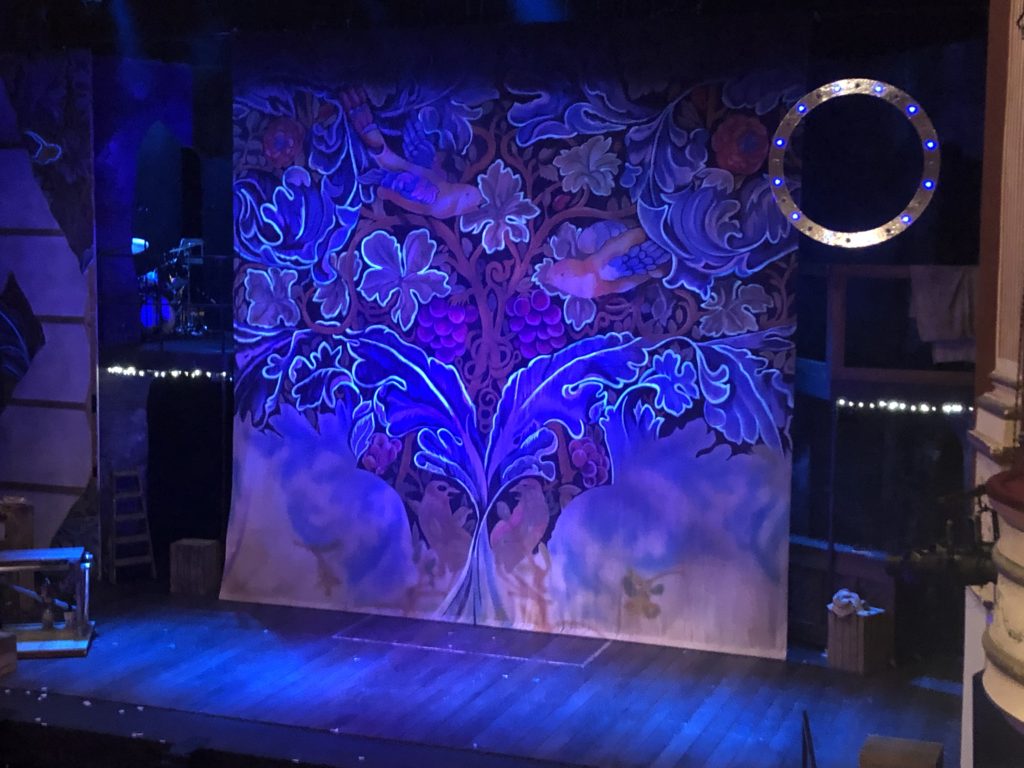
Katie Lias’ production design beautifully shifts from dilapidated Edwardian theatre to the neon-lit faerie realm, aided by Tom White’s ethereal lighting. The music is worth the price of admission alone, with the cast performing gorgeous renditions of classic songs like ‘Cupid, Draw Back Your Bow’, ‘Blue Moon’, and ‘My Baby Just Cares for Me’. (Yes, the song choice can be a bit on the nose, but it works – trust me). The harmonies are delicious, especially in the haunting performance of Laura Mvula’s ‘Sing to the Moon’, the culmination of this ensemble’s considerable skill – and the show’s major moment of pure magic.
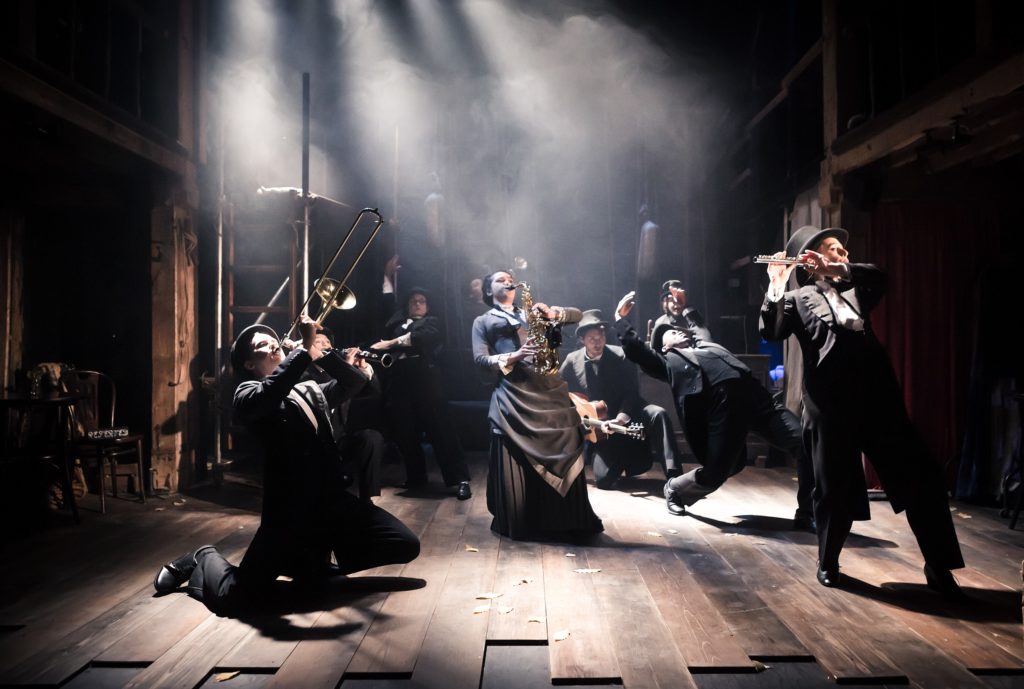
Our central lovestruck quartet – Lysander (Billy Postlethwaite), Hermia (Lucy Keirl), Helena (Robyn Sinclair) and Demetrius (Mike Slader) – are fairly thinly-drawn on the page, so your investment in their plight relies almost entirely on the actors’ charisma. Luckily, the four are more than up to the task, especially when Puck’s meddling turns their romantic squabbling up to eleven – coming to a crescendo with Hermia/Helena’s quippy sparring and the hysterical ‘macho-off’ between Lysander and Demetrius (the way they treat a bit of playground-style shoving as the most violently masculine mode of attack is maybe my favourite moment in the whole play – think ‘Agony’ from Into the Woods).
Postlethwaite gives easily the best performance in a brilliant ensemble. Effortlessly charming and captivating from the moment he saunters onstage, his Lysander is dynamic and compelling; his physicality pitched (at least from where I was sitting) somewhere between Kylo Ren and Kevin Kline in his prime. He makes the archaic dialogue sound natural and contemporary, and there’s a spark to his delivery that isn’t present elsewhere in the show. On the basis of his work here, his turn as Macbeth is sure to be mesmerising.
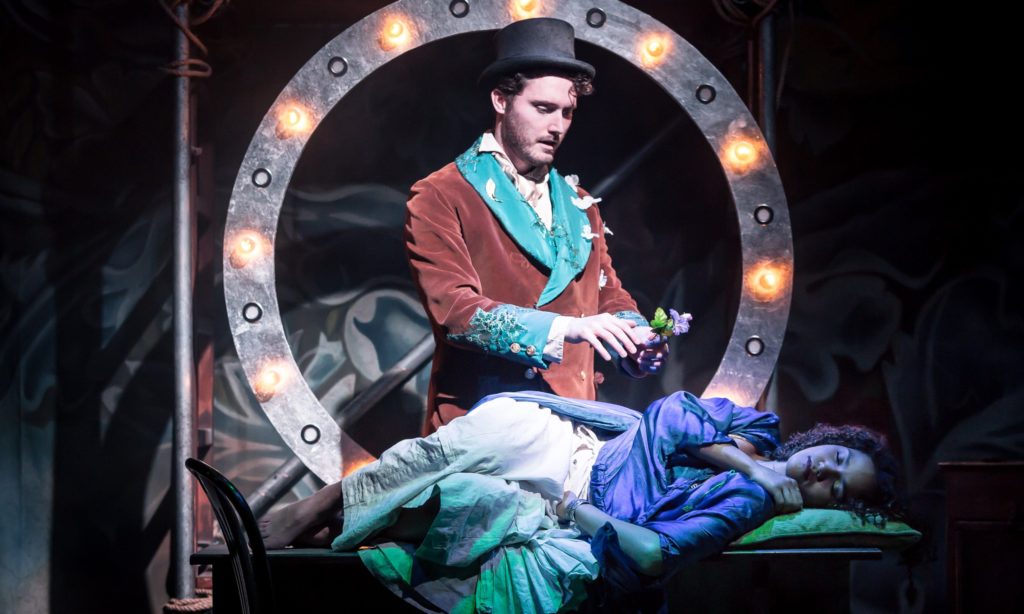
The lively chemistry between the main quartet carries them through wave after wave of romantic contrivances. Robyn Sinclair is a standout in every musical number, but her excellent artistry is undercut slightly by poor costume choices and overwrought affection for the rather insipid Demetrius. While Hermia and Helena are perpetually thankless roles, Sinclair and Keirl approach their perennially-perplexed paramours with panache. (Hermia for example insults Helena’s ‘beanpole’ frame despite the fact that the actresses are the same height. It’s a small but conspicuous issue which demonstrates that performing the play as writ doesn’t always work).
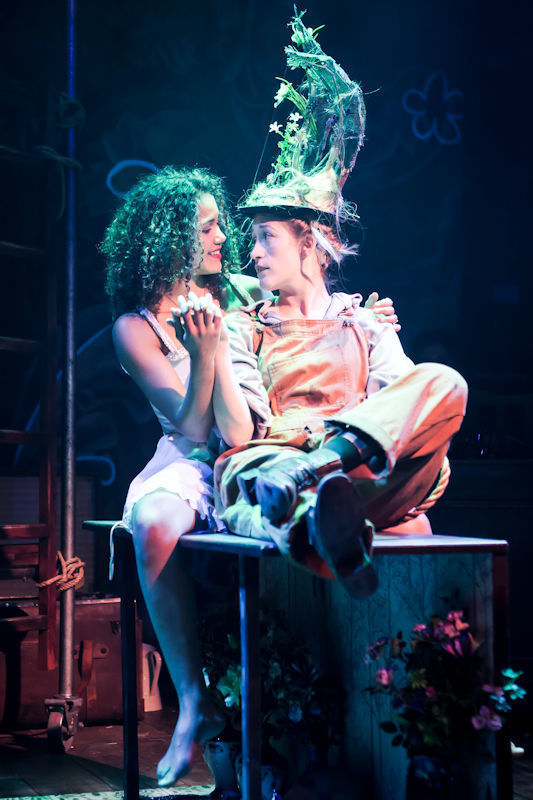
The closest the play comes to exploring the contentious gender politics at its core is to genderswap a few characters – notably Puck (Molly Chesworth) and Bottom (Emma Barclay), both of which had potential but were undercut either by performance/direction or connotation. As to the first, Molly Chesworth isn’t quite as mercurial or mischievous as the Puck character needs to be (although her ‘stroppy toddler’ scene is a high point). And although Emma Barclay shines as an entertainingly imperious Bottom (the puns are inevitable when discussing this character), her casting means that we are invited to laugh at the prospect of a romance between the only same-sex couple in the show – and when the spells are broken, the heteronormative status quo is reset across the board. I do think the show’s heart is in the right place, but I think it would have been more subversive to gender-swap one of the main quartet of lovers instead.
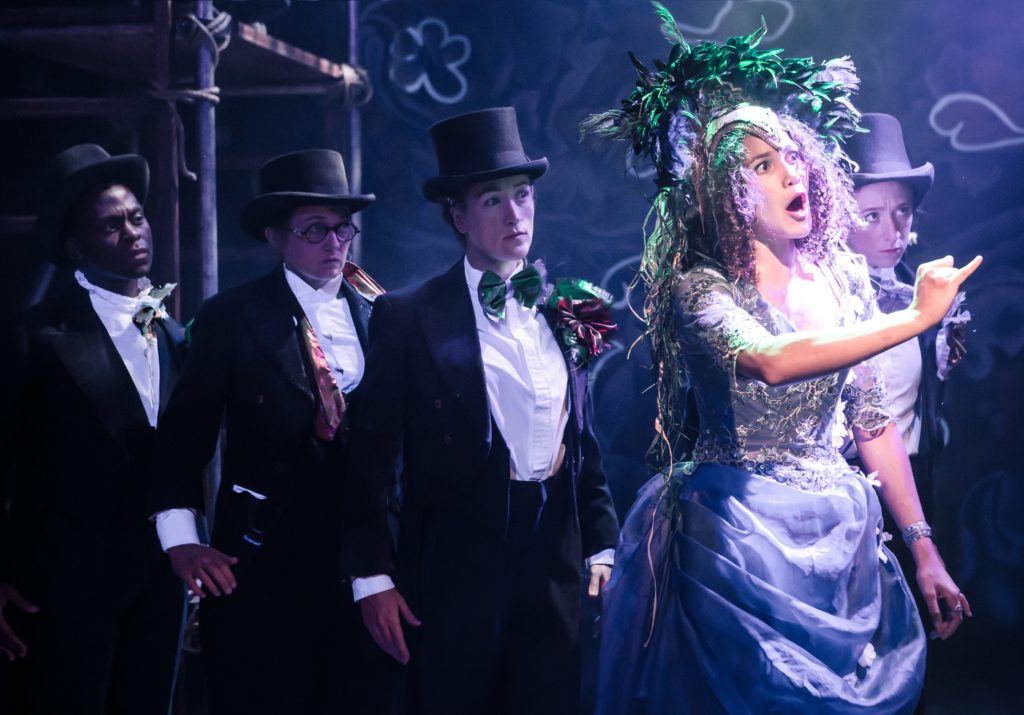
In other casting quirks, the actors playing Theseus and Hippolyta traditionally double up as Oberon and Titania – but while Emma McDonald impressively plays both Queens, the roles of Theseus and Oberon are played by different actors here, which doesn’t entirely work. Offue Okegbe’s Theseus is a wonderfully commanding presence, although they added a subtle bit of pre-marital strife between him and Hippolyta that goes nowhere (and reverses their loved-up vibe from the original play); but Jamie Satterthwaite’s Oberon is less convincing. Satterthwaite doesn’t quite bring the same regal elegance as Emma McDonald’s enchanting Titania, and his subpar outfit looks like a Halloween costume next to her elfin haute couture.
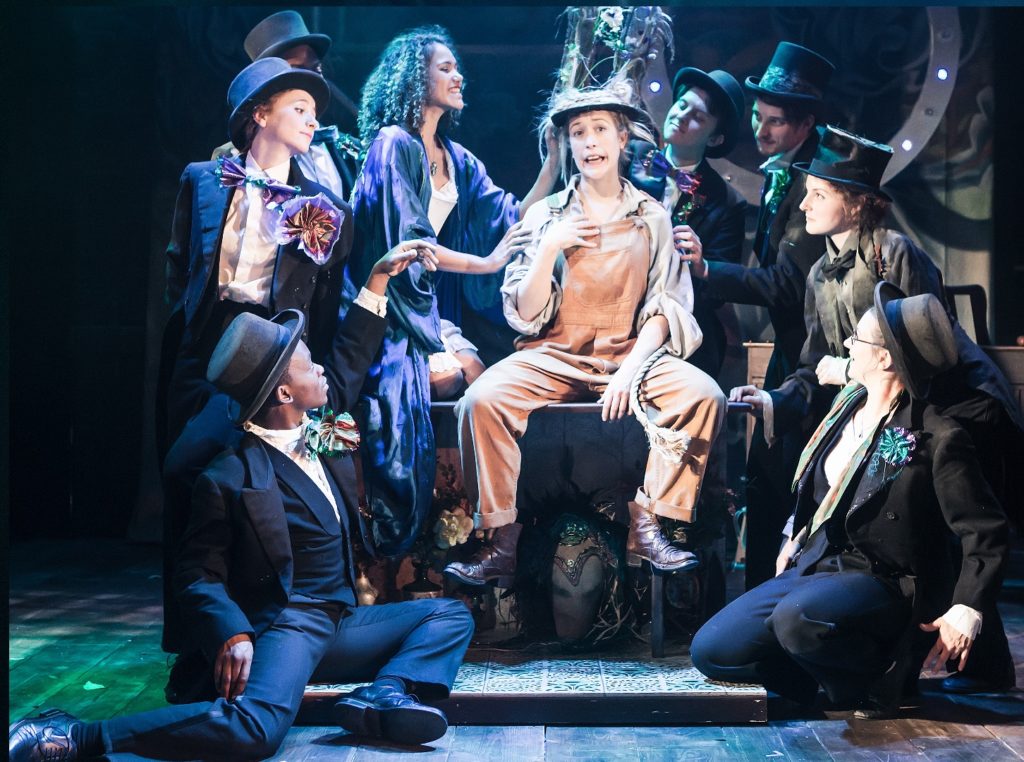
Although a tad drawn-out, the show ends on a perfect note thanks to the ramshackle players’ (un)intentionally inept version of Pyramus and Thisbe, and the hilariously but earnestly incompetent luvvies wouldn’t seem out of place in Waiting for Guffman or Barry. The machinations of the fey court might be frequently more interesting than the bickering beaus (you can’t really beat top hat and tails-wearing faerie courtiers singing Nina Simone) – but if what we have witnessed here is, as Puck warns, just a dream, then it’s a very good one indeed.
